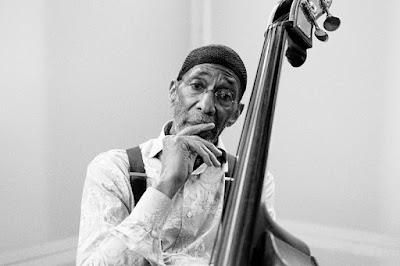I was inspired by a podcast called The 500 hosted by New York-based comedian Josh Adam Meyers. His goal, and mine, is to explore Rolling Stone Magazine's 2012 edition of The 500 Greatest Albums of All Time.
Album: #153
Album Title: The Low End Theory
Responding to Maron, Young talked about his time as a teen in Winnipeg, which he described as being “in the middle of everything that’s missing.” That cheeky poetic line stuck with me for weeks because of its beautiful ambiguity, artfully critical, yet deeply affectionate.
Winnipeg sits in the middle of the country, practically isolated from other cultural and economic hubs. Its location matches Young’s description, evoking a sense of emptiness in the stark landscape of the Canadian Prairies. Appropriately enough, his thoughtful, sometimes melancholy, lyrics appear to have been the source of his inspiration. For the creative individual, solace can serve as a laboratory in seeking those things that are "missing" and bringing them to life.
.jpg) |
| Maron and Young pose for a picture after their June. 2016 interview. |
I had heard tracks from the group before, including Scenario, Oh My God and, my favourite, Can I Kick It? But, this was the first time I checked out their discography. For years, I appreciated hip hop from a distance. I recognized its cultural impact, admired its lyrical dexterity, but never felt fully connected. Something was missing.
 |
A Tribe Called Quest (l-r) Jarobi White, Q-Tip, Ali Shaheed Muhammad and Phife Dawg (2011). |
Listening to Tribe felt like finding the centre of a map I didn’t realize I’d been drawing. Their music didn’t just fill a gap, it defined the space and time, making me realize my understanding of hip hop had been incomplete.
In short, Tribe’s music, its rhythm, intelligence, activist spirit, clever sampling and jazz-influenced sound, was the bridge to appreciating hip hop. Indeed, I would perhaps have been an ardent fan in the ‘90s had I heard the group’s first two records, (People's Instinctive Travels and the Paths of Rhythm and The Low End Theory). However, I wonder if I was ready for this understanding at that time. Perhaps, Tribe arrived in my life exactly when I was available to receive their message. |
| People's Instinctive Travels and the Paths of Rhythm, the debut record from A Tribe Called Quest (1990). |
The Low End Theory was Tribe’s second album after the group formed in 1985 in Queens, New York. The players comprised Q-Tip (Kamaal Fareed), Phife Dawg (Malik Taylor), Ali Shaheed Muhammad, and Jarobi White. They met through school and community ties in the late ’70s and early ’80s.
Originally, Q-Tip and Ali Shaheed Muhammad performed as a duo called Crush Connection, later changing their name to Quest. In 1988, during a friendly game of cards, fellow musician, Afrika Baby Bam (Nathaniel Hall), of the Jungle Brothers suggested expanding the name to A Tribe Called Quest.
This name stuck, cleverly capturing their identity. Alongside Jungle Brothers, De La Soul, Queen Latifah, and others, they helped form the influential Native Tongues Collective (NTC), a loose crew of artists known for thoughtful lyrics, Afrocentric themes, and innovative, jazz-infused productions. Additionally, NTC considered itself an artistic movement that rejected the trend toward violent or materialistic rap. Instead, they promoted positivity, individualism and social awareness while embracing collaboration over competition.
 |
| Africa Baby Bam (centre) flanked by the other members of Jungle Brothers -- Mike Gee(left) and DJ Sammy B. |
After a modest debut with People’s Instinctive Travels and the Paths of Rhythm, A Tribe Called Quest returned a year later with a bold leap forward: The Low End Theory. Released in 1991, the album broke fresh ground by blending stripped-down hip-hop beats with samples from jazz’s bebop and hard bop eras, an unusual and inventive fusion at the time.
Produced by group members Q-Tip and Ali Shaheed Muhammad, the record focused on the essentials of drums, bass, and vocals. This minimalist approach set it apart from the densely layered productions typical of early ’90s rap. One of the album’s defining features was a guest performance by Ron Carter, a Grammy-winning jazz bassist renowned for his work with Miles Davis, Herbie Hancock, Roberta Flack and Aretha Franklin. His appearance symbolically and sonically bridged the worlds of classic jazz and contemporary hip-hop.
 |
| Ron Carter, still holding down the groove at 88. |
We Got It From Here... Thank You 4 Your Service was the final record for Tribe. The group disbanded following the death of founding member Phife Dawg in March 2016, due to complications from diabetes. Much of the album was recorded before his passing, and his presence is felt throughout the project. The group saw the album as a way to honor his legacy and contributions. It was also a way to bring a 30-year collaborative project to a meaningful end.
“Years ago, in a tough time in my life, I read a Chinese proverb that changed my life. It said, ‘The best meal you can cook is made with ingredients that you already have.’ That proverb reminds me of hip-hop. And it reminds me, in particular, of Tribe.”
Tribe were a revolutionary, groundbreaking group whose sound found me, "In the middle of everything that was missing", and, like a good meal, helped nourish my growing appreciation of the art of hip hop.




No comments:
Post a Comment